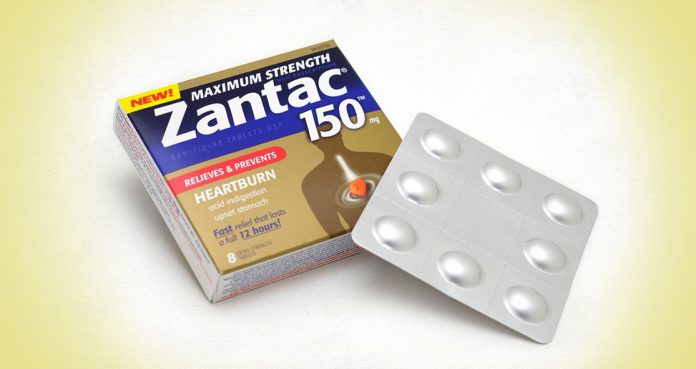On Friday, the U.S. Food and Drug Administration (FDA) said it has found low levels of carcinogens in some heartburn or acid-reducing medications, including the most popular drug Zantac (ranitidine).
The agency said it has found a cancer-causing impurity called N-nitrosodimethylamine (NDMA) in those medications.
This is not the first time the FDA has detected carcinogens in common medications. Last year, the agency found that certain high blood pressure and heart medications, such as valsartan, losartan, and irbesartan, were tainted with cancer-causing impurities. The FDA recalled a number of medications because many lots of valsartan were found to contain “unaccepted levels” of nitrosamines.
On Friday, FDA Press Officer Jeremy Kahn said, “We are still investigating all ranitidine products and we are continuing to test additional samples.”
“At this time, there are no company recalls and FDA is not urging companies to recall. So far, NDMA has been found in ranitidine in low levels and we are not calling for consumers and patients to stop taking ranitidine at this time,” continued Kahn.
The press officer added, “We do not have any information to share on how many companies’ products could be affected. The FDA will share more information with the public and industry as we learn more throughout the investigation.”
Zantac is one of the most popular and widely used antacids. It contains ranitidine, a drug that belongs to histamine-2 blockers, which helps in reducing the secretion of stomach acid, alleviating the symptoms of heartburn.
The FDA said in a statement, “Patients should be able to trust that their medicines are as safe as they can be and that the benefits of taking them outweigh any risk to their health.”
The agency has advised people who are concerned about the cancer impurity to look for alternative antacids approved for the treatment of heartburn.
Zantac manufacturer Sanofi said in a statement, “Sanofi takes patient safety seriously, and we are committed to working with the FDA. Zantac OTC (over the counter) has been around for over a decade and meets all the specified safety requirements for use in the OTC market.”
Dr. Janet Woodcock, the director of the FDA’s Centers for Drug Evaluation and Research, said in a statement, “NDMA can cause harm in large amounts, but the levels the FDA found in preliminary tests of ranitidine barely exceed amounts you might expect to find in common foods.”
Dr. Woodcock also said the agency has been working with “international regulators and industry partners to determine the source of the ranitidine impurity.”
Meanwhile, the FDA recommends seeing your doctor if you experience any adverse drug reactions after using ranitidine.





















